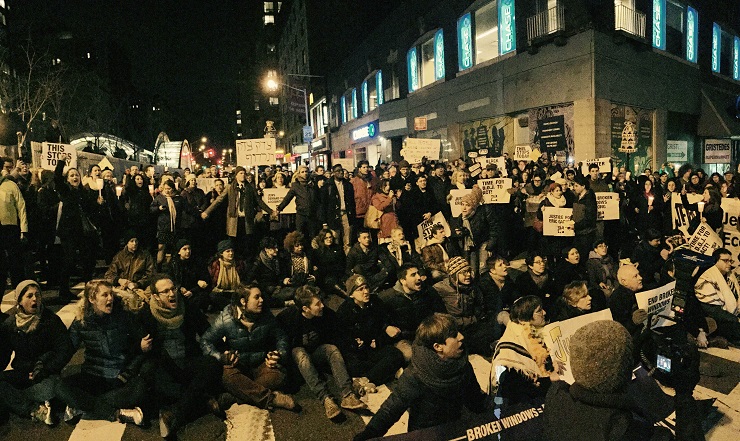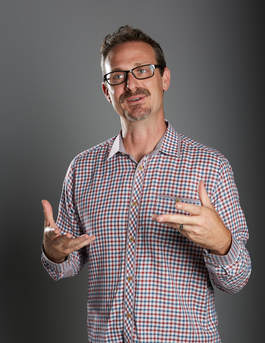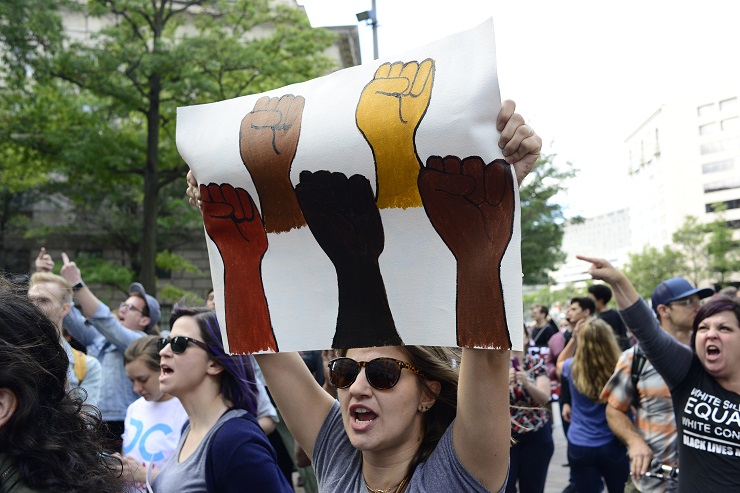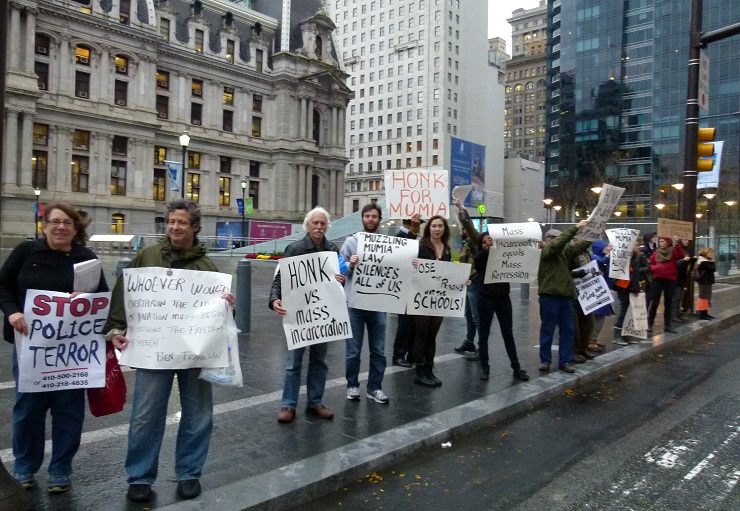
Defiance by Chris Crass Chris Crass
Chris Crass is a longtime organizer, educator, and writer working to build powerful working class-based, feminist, multiracial movements for collective liberation. He is one of the leading voices in the country calling for and supporting white people to work for racial justice. He joined with white anti-racist leaders around the country to help launch the national anti-racist network Showing Up for Racial Justice (SURJ), which works in white communities for racial justice. Rooted in his Unitarian Universalist faith he works with congregations, seminaries, and religious and spiritual leaders to build up the Religious Left. He lives in Louisville, KY with his partner, and their two kids. Learn more about Chris here. I spoke with Chris and Richie Schulz, Philadelphia Yearly Meeting’s community engagement fellow, on September 6th, we talked about the current political moment, organizing white folks for racial justice, and the stake white people have in that work. This is the fifth of five posts from that conversation. This wasn’t an interview per se, but a conversation with each of us each contributing.

Richie Schulz: What sorts of things happen within Unitarian Universalist (UU) congregations to allow for that deeper action and movement to occur? What are UU congregations doing to empower UUs to be courageous and step into action?
Chris Crass: It's crucial that congregations come alive for racial justice values both within the congregations themselves, within congregational life, but also through experiences partnering with people most impacted by injustice, for example participating in the Latino/Latinx-led immigrant rights movement in Arizona. People there are learning and growing through their experiences of being shoulder to shoulder with people facing off against a racist police force with Sheriff Joe Arpaio at the forefront and with the Black Lives Matter (BLM) movement opposing the racist system of policing. Similarly, it's critical that people get out of their congregations, UUs of color as well as white UUs, in experiencing the realities of white supremacy.

Whether it's people of faith coming together in Charlottesville, whether it's people of faith coming together against the attacks on the Affordable Care Act and the efforts to tear away health care from working-class people, all of these situations, these moments with DACA are opportunities for us to live our values in a way that then also brings our faith in relationship to multiracial grassroots democratic movements. This can energize and bring alive the best of our faith to continue doing the work within the congregation in a way that is relevant to the broader world and relevant to what our values are related to being in the world. I think right now, through Black Lives Matter (BLM), there's been a much higher level of organizing and organization among UUs of color, Black Lives Matter of UUs and Desis Rising Up and Moving (DRUM), but throughout the association in local congregations and also the national association of UUs, the national leadership and staff, that leadership has really been pushing the congregations in a powerful way. There was a racist hiring incident that recently happened where a woman of color was not hired and literally told "You're not the right fit for this all-white staff." That just set off a huge response that was painful and powerful. UUs of color talked about their experiences of either being told "You're not the right fit," or being made to feel like “You're not the right fit”.
There’s also an outpouring of resistance from UUs of color and anti-racist UUs who have been organized and pushing demands for immediate goals around percentages of people of color hired, with a change from this kind of more neo-liberal multicultural, "We really encourage everyone to apply" model, into a "We're committed to becoming a multiracial faith with multiracial leadership as well as creating mechanisms of support, robust recruitment and leadership development." We also challenge the white supremacy that locks the doors on so many people from being able to come in. So, all that has been happening. It's been a simultaneous, "How do we challenge the white supremacy within our faith's tradition and congregations while also being courageous for racial justice out in the streets of this country and in this time. It's a both/and, not an either/or approach. And I think the organization of people of color and the organization of white anti-racists has been creating a culture and a value and a vision that people can rally behind and be galvanized by. I think that has been incredibly important. And so out of this hiring crisis that happened just a few months ago, more than half of the congregations of the UU faith, close to 700 congregations held white supremacy teach-ins over a two-week period that helped the congregations better understand what white supremacy is and how it plays out within our faith. They were reading about POC experiences of racism within the faith, but also reading anti-racist racial justice visions of what the faith can look like and can be in this world.

Lucy Duncan: That's really powerful...
Chris Crass: Yes, I think that it's been tremendously powerful and I think this both/and approach of being in the streets, in the world, in our congregations, in our hearts, in our souls, both/and we do this work together and the work we do in the world helps transform us and the work we do in our congregations transforms us: it's all connected.
Related Posts
This is the time of monsters: A conversation with Chris Crass pt. 1
The precarity and possibility of this political moment: A conversation with Chris Crass, pt. 2
If this faith were a bowl, could it hold me? A conversation with Chris Crass, pt. 3